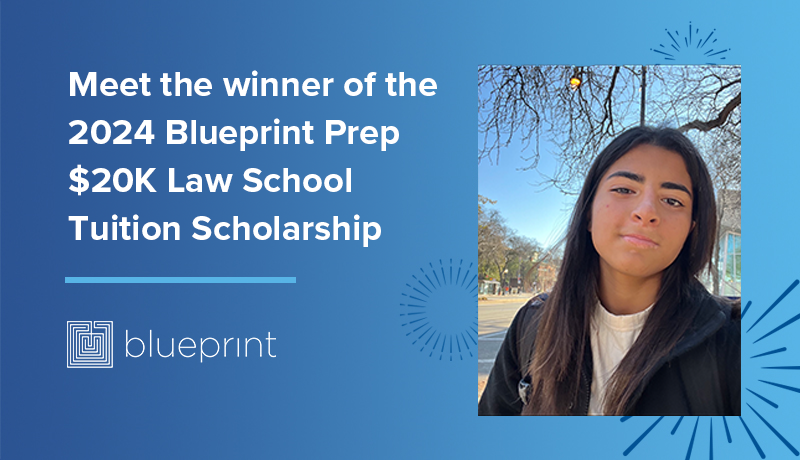[et_pb_section bb_built=”1″ admin_label=”section”][et_pb_row admin_label=”row”][et_pb_column type=”4_4″][et_pb_text admin_label=”Text” background_layout=”light” text_orientation=”left” use_border_color=”off” border_color=”#ffffff” border_style=”solid”]
by David Mainiero
One of the most common questions that law school applicants ask our admissions experts is some variation of the following: “Is my low LSAT score going to prevent me from getting into law school?”
While your undergraduate academic record and your LSAT score are the two most determinative factors of your prospects for admission, they do not paint a complete picture of an applicant. Of course, when you say “low LSAT score” you are referring to a score several points below the 25th percentile of admitted students from the previous year, the answer to your question is probably the one you might expect: Yes, it will probably prevent you from getting in.
Nonetheless, we’ve seen plenty of students overcome LSAT scores around the 25th percentile of admitted students by LSAT from prior years. The caricature of such a successful admit generally finds a way to exhibit strength in most of the following areas:
Strength of GPA – As you know, LSAT and GPA are the two pillars of your law school admissions competitiveness. Naturally then, weakness in one area should most directly be compensated for by strength in the other. Prospective law school admits refer to people in these situations as “splitters” because they can be above the median accepted figures in one category but below that threshold in the other.
Reputation of Undergraduate Institution – For the top law schools, there are typically 30 “feeder” schools that produce a very large proportion of admitted students. These are schools whose course offerings and academic landscapes are ones with which the law school admissions offices are quite familiar. Because of the track record of students and alumni from these undergraduate institutions, law schools tend to hold them and their GPAs in higher regard. Yale Law School, for example, boasts that its Class of 2019 represents students from approximately 80 undergraduate institutions and is probably one of the more diverse in those terms; nonetheless, the colleges at Harvard and Yale probably make up for 15% of the 261 admitted students. Doing well at one of these schools can make a big difference when you need to offset a comparatively low LSAT score. For instance, a 3.78 from Yale is almost always going to be viewed as more impressive than a 3.9 from Kansas State. This is the blunt reality. Law school admissions officers use the LSAT as an “equalizer” in order to better compare students from different schools. As the example above should demonstrate, not all 3.9s are regarded equally. So, if you have a less-than-stellar LSAT score and a low GPA from a less-well-known school, your chances of admission plummet.
Fortunately, there are plenty of things that applicants can do in order to add further support beyond your hopefully impressive GPA score and provide the admissions office with even more validation of your ability to succeed in 1L. These things fall into a couple of different categories (in no particular order):
- Letters of Recommendation– Having an excellent letter of recommendation from a professor at a similar caliber law school that attests to the student’s analytical ability and work ethic (or other attributes that evidence the student’s ability to succeed in law school) can be a gamechanger. One student I recall several years ago had a very strong GPA from an Ivy League school, but only scored a 165 on the LSAT and wanted to attend Yale Law School. Yale’s median accepted LSAT score at the time was around 174. This student, however, had worked as a Research Assistant for a YLS professor who then wrote a glowing letter of recommendation for her. At a school like YLS which involves faculty in the admissions process, this letter almost certainly carried the day for her.
- Summer Experiences –Summer positions, either in the working world or in an academic setting, can often serve as a proxy for coming from a “feeder school” in some cases. Success in one of those programs will speak volumes about your ability compared to those of your peers from other schools.
- Extra-curricular –Extra-curricular activitiesthat engage people outside of your school can be another way to aid the admissions office in making comparisons between you and candidates from other schools by other means than the LSAT. For example, debaters with a strong competitive track record have found tremendous success in law school admissions.
- Publication –Much like summer experiences or extracurriculars, getting published in some capacity can really help you make the case to law schools that you make the grade.
David Mainiero is a graduate of Dartmouth College and Harvard Law School. He is a Co-Founder and admissions expert at InGenius Prep.
[/et_pb_text][/et_pb_column][/et_pb_row][/et_pb_section]



